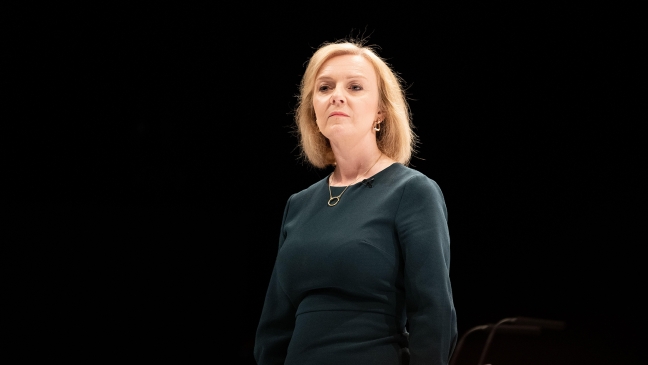As the new Cabinet was announced yesterday evening, the length of time it took to get to education started to feel pointed.
You would expect the chancellor, foreign and home secretaries and, perhaps, the new health minister to be announced first. But we had the international trade, leader of the house, chief whip and Northern Ireland roles announced before Kit Malthouse was confirmed as the fifth secretary of state for education in the past year.
Perhaps I’m being oversensitive, but Truss didn’t mention education in her speech outside No 10 either, apart from a single mention of schools in a list of things she wants to build, alongside roads and broadband.
Now, of course, there are plenty of other problems around at the moment. The energy crisis, and its economic consequences, is the dominant issue of the day, closely followed by the NHS’ inability to offer timely emergency care.
But education has its problems too, right the way through from nurseries struggling with higher costs to universities trying to deal with a broken student finance system.
The appointment of Malthouse reflects this lack of prioritisation. He is not a particularly close ally of Truss, unlike, say, Thérèse Coffey at the Department for Health and Social Care. He wasn’t, I’m told, originally even going to be in the Cabinet, but they didn’t want to give the role to Kemi Badenoch or Penny Mordaunt for fear it would give them profile. Truss wanted someone who won’t make a noise or a fuss.
Malthouse has no history of any interest in education, which is rarely a good sign. The same was true of Gavin Williamson, who will go down as one of the worst education ministers of all time, and Nadhim Zahawi, who struggled with a role that didn’t particularly fit his interests or skills. The last secretary of state who seemed to genuinely care about the topic was Justine Greening, and there have been six others since then.
At least he won’t arrive with a bundle of pre-existing ideas and prejudices, so we can hope he’ll be open to advice and will listen to the sector. He certainly has a long list of problems to sort.
Energy crisis and budget worries
As a new school year starts, the issue that will be top of mind for most leaders is money. The combination of a higher-than-expected pay award (entirely deserved but not planned for) and higher energy bills has pushed large numbers of trusts into deficit budgets.
We are expecting details of the government’s plan to subsidise energy costs tomorrow and it looks, from what’s been briefed to newspapers, as though this will cover schools, as well as households and businesses. That will offer a lot of relief.
But even with this, there will still be a black hole in many budgets and it is extremely unlikely that the Department for Education (DfE) will be able to win any more money for schools, even if Malthouse wants to try. There are so many competing pressures on the national finances, compounded by Truss’ desire to offer tax cuts as well as an energy bailout, that it’s hard to see the Treasury acquiescing.
Malthouse’s other immediate priority will be figuring out what to do with the Schools Bill that was gutted in the Lords before recess. Peers forced the removal of the key clauses that would have allowed the DfE to regulate academy trusts directly. We are expecting new clauses to be laid imminently, and the new ministerial team will have to get their heads around the implications.
There has been some noise that the bill might be pulled altogether, which would leave the whole system in limbo, so hopefully isn’t true. If Truss wanted to fulfil her campaign pledge to open more grammar schools, she would have to use this bill to do it, but I can’t see them wanting to have that fight now. If they do, all hell will break loose.
Beyond the immediate financial and legislative questions, there is a set of systemic problems that require attention. Teacher recruitment is a big one, with numbers way down this year. If we do, as expected, enter a recession, it should help, although there is some evidence that teachers who join the profession because they can’t get a job elsewhere tend to leave earlier.
And there is a whole series of knotty and interconnecting problems around mental health, children’s social care, and special educational needs and disability that badly need attention and coordination.
But let’s not get ahead of ourselves. Let’s see if this secretary of state can stay in post for more than three months. That would be a start.
Sam Freedman is a former senior policy adviser at the Department for Education and a senior fellow at the Institute of Government. He will be speaking at the 2022 Schools North East Summit on 6 October





